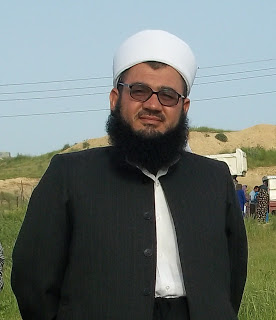CPTnet
23 June 2011
IRAQ UPDATE: May 2011
Members
on the team in May were Lukasz Firla, Peggy Gish, Michele Naar- Obed, Kathy
Thiessen, and Chihchun Yuan.
Post-Protest situation
Mr. K told CPTers that since the crackdown on demonstrations in
Suleimaniya, Kurdish security forces had been abducting and beating protesters
and journalists. He said the
biggest problem now is not the presence of a greater number of security forces,
but that people are feeling scared, intimidated, discouraged, and helpless. When the young people see the forces in
the square and market, he said, they understand what the Kurdish people
experienced under Saddam Hussein.
Mrs.
N reported that her husband, Mr. F was going to jail in early May for one month
on a charge of “slander.” She said
that several people offered to pay the bail or fine to get him out, but he refused. They wanted to use his case as an
educational tool to emphasize that the government was jailing him for his
criticism.
One
CPTer went with Mrs. N to visit her husband on 3 May at the Mo’ascar Salam
jail. Before going to the jail, Mrs.
N met with a group of journalists from the New
York Times. Just as the
interview started, Mrs. N received a call that someone had paid bail for Mr. F
and he was being transferred to another facility for processing and release. With the New York Times reporters, the group drove to the transfer facility
where many other local journalists were gathered. Mr. F insisted on not accepting the bail payment but the
judge insisted that he had to take it and released him. After much paperwork, Mr. F was
released and then sent to another police station where he received another
warrant for the same charge and was told to appear in court the next day.
On
4 May, the team went to Azadi Park to observe a government-authorized rally
supporting the protest in Syria, organized by the Syrian and Iranian Kurdish
refugees in Suleimaniya. At the
same time, military forces still banned protests directed at the Kurdish
government. The team asked a few
people who were participating in the rally about the situation in Syria if they
had supported the local protest against corruption of the two dominant parties
in Kurdistan Iraq. They said they
did not.
On
8 May, the team visited Mullah Kamaran and his family. He  shared his life story and the reason
shared his life story and the reason
he participated in the local protest at Freedom Square. Mullah Kamarran’s story
is available here.
The
team and workers from MCC (Mennonite Central Committee) in Erbil arranged for
two representatives from Friends Committee on National Legislation (FCNL,
Washington D.C.) to meet several protest leaders on 27 May. The team invited one student leader and
one professor from Suleimaniya University, one lawyer, and one woman who had
been participating in the demonstrations against corruption in the Kurdish
Regional government.
Border Project
The team made two trips to the Choman District to arrange for an
accompaniment project in the village of Kani Spi during the planting season. In past years, Iran and Turkey have
attacked the border areas during the spring. One of the trips involved talking with the local mayor about
the project.
On 13-14 May, CPTer Naar- Obed visited team friend,
Mr. B, who belongs to a displaced family from Basta in Qaladze District. Hoof and mouth disease killed many
animals in Basta. Mr. B was sick
from drinking the milk. On 25 May,
Naar- Obed with CPT friends from Rania brought olive trees to Basta and planted
the trees there.
Next TV- Taiwanese media
A Taiwanese media group spent ten days (6-15 May) in the Suleimaniya
Governorate to learn about Kurdistan and CPT’s work. CPTer Yuan arranged for the group to visit women activists in
Kirkuk and Suleimaniya, the border villages where bombing from Iran and Turkey
has had a huge impact on people’s lives.
NGO
Status
The team’s NGO status was renewed for another year.



